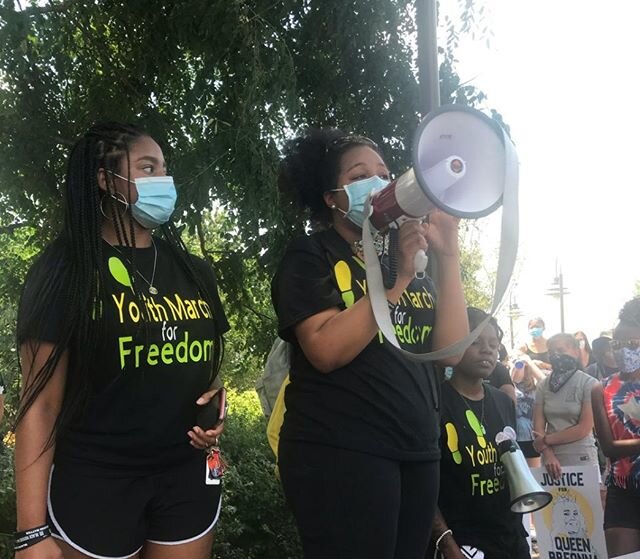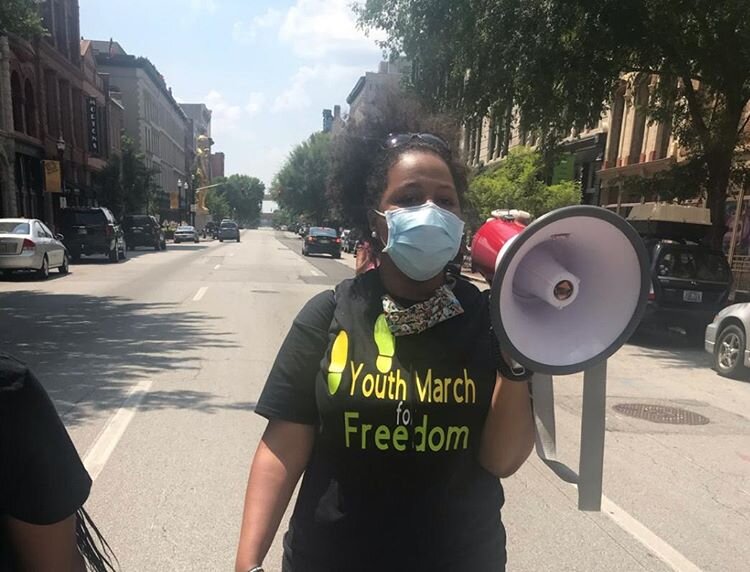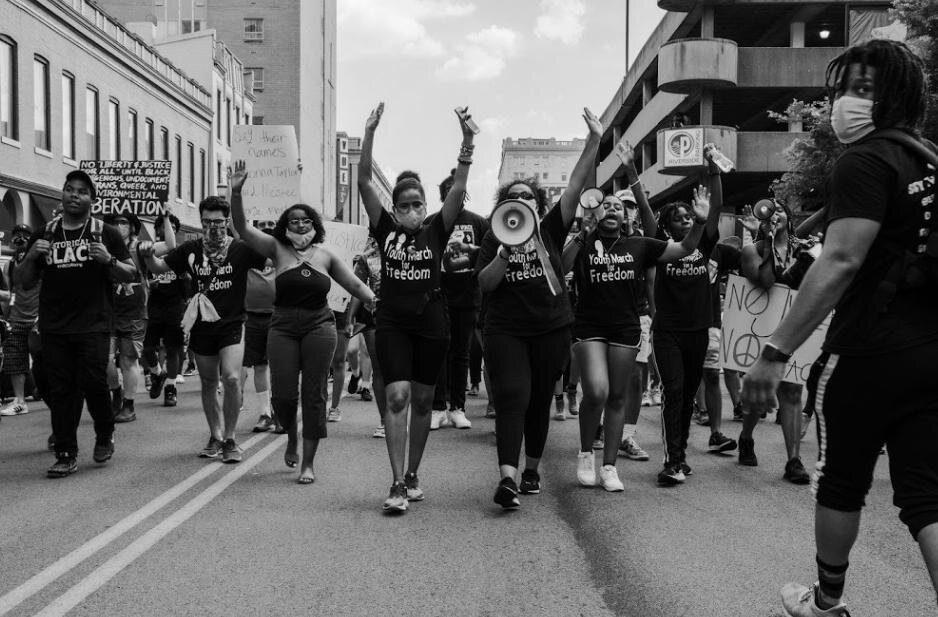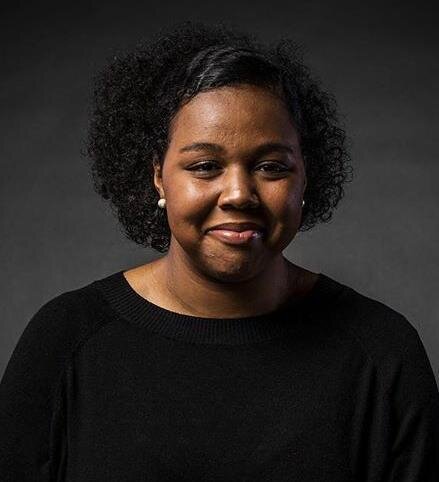To the witnesses of the movement
[A letter to the past, present & future of the movement from Imani Smith, a 19 year-old student, community organizer and #BLM protester who has been fighting against no-knock-warrants since the killing of Breonna Taylor in Louisville, KY]
To the witnesses of the movement,
(To our beloved dead.)
I must first acknowledge those for whom we shout their names in the streets and carry signs — the ones for whom we now demand justice because of the humanity that they were stripped. I cannot begin to express the depth of solemnity that I hold every time that I hear your name. Nor can I bear it to see your teary-eyed loved ones, speaking of you, as their voices shake and their backs bend. When they lost you, I lost you as well. I lost the chance ever to meet you, or to experience life in the glow of your presence. Yet, I continue to find you in this struggle. Every time that I take to the streets to protest with others or sit down to talk with another movement agent, I find you; and I find your desire to be remembered, and for the World, you were swept from to be changed. I share this with you — the hope for a better world — and I only hope that in everything I do, and in every motive I pursue action through, that you feel honored and closer to peace.
(Now, to those living.)
Sadly, it has become unconsciously normal for many to be apathetic to the news of another person being killed. It has almost become the expectation that every night when we turn on the news, to hear of a shooting, or a police officer mistreating a Black person. However, it is my hope that in this period of uprisings, people have been shaken out of their moral slumber and have been moved enough to commit to seeking an all-encompassing form of justice.
Coming into this movement, I had the weight of nineteen years of living as a Black female attached to my conscience. My experience was different from many of those around me, in that everything that I set my hands to do, I was met with the caveat of my existence in this society. From an early age, I came to understand the dichotomy of America — that on one hand, it presented itself as a testament of moral achievement to the World. In reality, Black people in its land still carried the induced strain of oppression and trauma.
I hold that trauma in my veins. I am reminded of it every time I look down at my hands. I am especially reminded of it every time I see another image of a Black person losing their life to the ugly reality of institutionalized racism and hatred.
The way that I have come to understand the work that I do — the organizing of youth coalitions and marches — is that it is my service to the World around me and my obligation to my history and my ancestors. That early preparation of learning and understanding from the circumstances I have sprung, fuels my passion for the movement. For me, the blood that I am consisted of, and that sustains my being alive is a story of persistence and resilience. My blood is not only a sequence of DNA; it is a collection of stories, circumstances, and decisions. In all, my blood was fought for, and my being alive is evidence of the importance of my dedication to this fight towards liberation.
When I look at the society around me, almost every aspect of it reminds me that I was not intended ever to belong. Like many others of my generation, I often feel depleted of patience with a system that continually gives us excuses as to why justice has to wait. Yet, every so often, I find a glimpse of inspiration that encourages me to carry a deeply rooted hope for what can be. My hopes have genuinely come to reside in those whom I work with and meet amid the work. We all seem to embody this spirit of ‘looking forward.’ When we look back at the 60s, we see the same conviction. My conviction in what we can achieve is overwhelming, but it is necessary.
I have come to maintain a strange enthusiasm and a sense of purpose with the movement. My approach to understanding the basics of what we should inspire our society to be is built on radical love. The thought is that if we say we embody love, that we want to see justice or that we believe we are ‘good,’ that love for what is right has to be enforced and implemented in everything we do. Radical love would cause us to reevaluate the environments around us, how we succeed, and what we allow to take place. It would ultimately cause us to be more considerate and more intentional in devoting ourselves to joining the struggle and winning.
In hope and pursuit of justice always,
Imani
Imani N. Smith is a student at Centre College. As a member of the Class of 2023, she is the Finance Head for Centre’s Black Student Organization, a Diversity Student Union Representative in the Student Government Association and part of the SGA Ad Hoc Committee on Diversity, Inclusion, and Equity. Her work leading youth protests in Louisville, KY has been chronicled by the local newspapers in that region.
(c) 2020 Imani Smith



